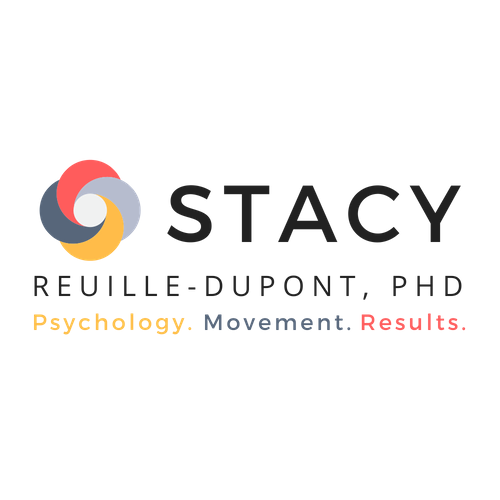What Needs Change
Many people I see in my office are able to regulate themselves when things are going good. When things get challenging however … many struggle to maintain practices that keep them focused on what is working.
Many ask me how they are supposed to maintain hope when things are hard. It is a tricky dance between acceptance of what is and awareness of what is not wanted. Holding this paradigm in balance can help make sure you are focused on what is working and what needs to be changed. This can be a tough balance to find and relies on maintaining enough self regulation to help yourself be present to what is, just as it is.
HALT for Change
An easy way to remember how to care for yourself is the acronym HALT. Are you:
- Hungry
- Angry
- Lonely
- Tired
If you are any of these things you will be more irritable and struggle more with relationships and completing daily activities. As you work on taking care of yourself, make sure these areas are covered. It goes a long way toward helping you handle difficult situations with grace.
Let’s break down each of the letters into actionable steps. It is here that you have power and control. You may not be able to change the situation you are in, however you can change how you are orienting to it and how you show up. Thus helping yourself accept what is, just as it is.
H- Hungry
H – Are you hungry? Then eat. A nice balance of good fats, protein, and carbohydrate goes a long way to help you regulate your emotional experience. In its basic form, this is about taking care of physical needs, however, it can be about much more. If you have enough to eat but still feel hungry, what are you hungry for? What are you feeding yourself? Is it nutritious? Does it fill you? Think about not only the food you eat but the media, music, social experiences, physical spaces you find yourself in. Are they nourishing or do they feel depleted and bland? Take care to feed all of your senses well. Without nourishing intake you will feel empty and life will lose its sweetness. When those things happen we begin eating for reasons other than physical hunger.
A- Angry
A – How are you with your anger? Many of us were taught that anger is bad or violent. That is not true. Anger is only violent when you act out violently to discharge it. It is only “bad” when the results of your actions have created further complications (guilt and shame) to deal with. When we are suppressing anger it leads to all sorts of issues.
Anger revs up our inflammation system, thus we feel more body aches, joint pain, have concentration issues, memory problems, and heart stress. It wrecks havoc on many of our tissues because all that extra inflammation has no where to go. It cycles through the body looking for an outlet only to circle through the system again and again.
Emotionally suppressed anger often leads the despair that underlies depression. When you feel so trapped to influence anything well, the world looks pretty hopeless. I often coach people to feel their anger in little bits. This keeps it manageable,. As noted above may of us have seen and experienced negative outbursts of anger. Anger doesn’t have to be explosive, but it does need to move out. Anger’s job is to help you notice something unjust or when a boundary has been crossed. It is a catalystic emotion, one that makes change happen. It wants something done and feels better once expressed. It is in the expression mistakes of acting out are made in ways we are not proud of.
Learning how to gather the information and then make decisions based on the most effective expression of those emotions is called emotional regulation. Emotional regulation is something we all learn. Emotions are just here to give us information. Once we get the information and respond to them, rather than impulsively react, they dissipate
L- Lonely
L – Feeling lonely, even in a crowd. There is a great quote on the poster “How to Build a Community” it says, “no one is silent, though many are not heard”. Often we feel like no one is listening to us even when they ask for our thoughts. Many of us do not have someone in our lives who can deeply hear us, beyond our words and actions, but really hear what underlies our experiences. Sometimes we can’t even hear ourselves at this level.
Again on a basic level, if you are feeling lonely reach out to your support system. Get around people where you can smile and feel at least a little connected. Notice how you keep yourself disconnected when you are in a crowd. Do you go to the coffee shop and make no eye contact, wear your headphones, and make sure you are nowhere near another body? You might want to take off your headphones and try to make some eye contact, you can decide how close to stand in line, but paying attention to natural connections in our surroundings is a way to begin to reconnect the world. If you are feeling lonely in a crowd it may be time to start doing therapy to experience the sensations of being deeply heard or to learn skills to be more effective in your communication patterns.
T-Tired
T – Tired. This could be truly physical, you didn’t sleep well last night or it could be deeper and more extreme like I am tired in my being. If you are feeling physically tired, work to get better quality sleep by practicing sleep hygiene. If you are feeling tired in your being you might want to look at the emotional load you are carrying. Many of us are unaware of our deep sadness, anger, or fear, it has always been there. It may be something that was handed to us by our families and so we know it well.
Or it might be that life has been hard and you are weary of the burdens related to living or losing. In this case, relieving the fatigue is about taking a life inventory and beginning to get rid of that which no longer serves you, grieve what you have lost, and work to build positive experiences into your day no matter how small. Again, this may require the help of a professional and someone who can really support you through your process.
As you work to help yourself navigate changes in your life with grace, remember it is acceptance of what is that makes all the difference. It does not mean you have to like it, want it, or agree with it … but you do have to accept it is what you are dealing with if you want to shift.
Take Care to Change
By taking care of these 4 areas you are already moving toward being able to move through change with less disruption and strife.
Regulate Yourself for Change
Want to feel more regulated and in control of yourself? Remember: HALT
- Hungry – feed yourself well. This included nutritious foods as well as everything you consume – media, social experiences, music, art, nature, anything you let into your body.
- Angry – feel your feelings, notice what boundary needs to be set and take action in a productive way. Work to let it out a little at a time if it feels too big to do at once. Be patient with yourself. This can be difficult.
- Lonely – reach out to a member of your support crew. Notice how you keep yourself separate and defend against connecting. Work to engage with your environment and others with more ease.
- Tired – get some rest. Even a small break, short walk, or simple breathing exercise will help shift your mood. Get some sunshine. Sunshine is known to help raise energy levels. If you are feeling the heavy burdens of living life, get some support and help to determine what you can let go of and what to keep. Then learn new skills to cope with in more healthy ways that leave you feeling energetic not depleted.
Learn more and reach out!
And as always, if you are struggling to engage fully in your life and would like to see how psychology might be able to help you contact me today!









 Twitter
Twitter Facebook
Facebook Linkedin
Linkedin






